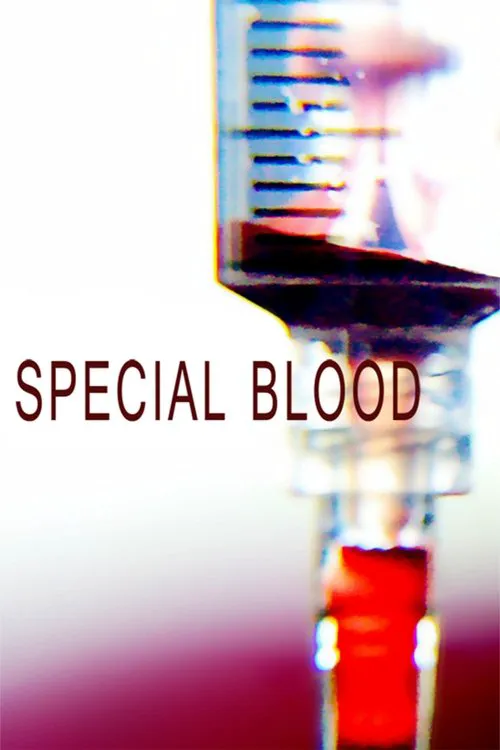Special Blood

Plot
Special Blood is a 2012 American drama film directed by Michael Barnard, focusing on four families whose lives are turned upside down when their children are diagnosed with Sickle Cell Disease, a rare and painful blood disorder. The film explores the struggles faced by these families and the strength that emerges when they come together in their pursuit of medical truth and hope. In the opening scenes, we meet the four main families - the Jones', the Browns, the Carters, and the Lees. Each family has a child with Sickle Cell Disease, a disorder characterized by abnormal hemoglobin in the blood, leading to periodic episodes of pain and organ failure. Despite their best efforts, the families find themselves trapped in a seemingly endless cycle of medical misadventures, with doctors who are either uninformed or dismissive of their children's conditions. The father of one of the children, Jamal Brown, a former soldier, has always believed that medical professionals are supposed to care about their patients, not just treat them like lab rats with symptoms. However, in the early stages of their medical journey, Jamal and his family experience a particularly painful and disappointing episode where they visit a renowned hospital, only to find that the specialists there know very little about Sickle Cell Disease. Despite the obstacles, the families begin to form a tight-knit community, bonding over their shared struggles and experiences. It is within this supportive environment that they find the strength to question the healthcare system and their own doctors, ultimately leading them to take matters into their own hands. Meanwhile, the families learn more about their condition, particularly about the lack of funding and understanding within the medical community surrounding Sickle Cell Disease. As they navigate their complex journey, they have to confront various systemic and cultural barriers, including the prevalence of misdiagnosis and delayed diagnosis, resulting in irreversible organ damage. A significant part of the narrative revolves around Jamal's determination to find alternative treatments for his daughter, Nia. In his pursuit of more effective care, Jamal becomes an advocate for his community and, in doing so, unites the other families. This growing coalition forms the foundation of a larger community, comprised of patients, families, and caregivers, all working together in defiance of a healthcare system that seems to be failing them. As the narrative progresses, the families begin to explore alternative healing practices, including herbal remedies and spiritual interventions, in addition to Western medicine. These methods bring a degree of solace and relief, but are often viewed with skepticism by the medical community. However, through their collective experience and perseverance, the families come to realize that these approaches work for them, providing a welcome respite from the chronic pain and suffering associated with Sickle Cell Disease. As tensions rise within the community and between the families and their medical providers, Jamal and his wife, Tanya, become leaders in an extraordinary fight for the respect, dignity, and medical attention that their children deserve. While facing numerous setbacks and obstacles, their resolve only deepens, serving as a testament to the transformative power of community and collective action in the face of adversity. Through the stories of Jamal, Tanya, and the other families in Special Blood, the film sheds light on a critical healthcare issue. It brings to the forefront the challenges faced by patients and families struggling with rare diseases and the need for more awareness, research, and understanding from healthcare professionals and policymakers. Despite the many challenges and difficulties they encounter, the narrative ends with a message of hope, highlighting the resilience of those who are determined to take control of their health, their lives, and their futures.
Reviews
Recommendations


